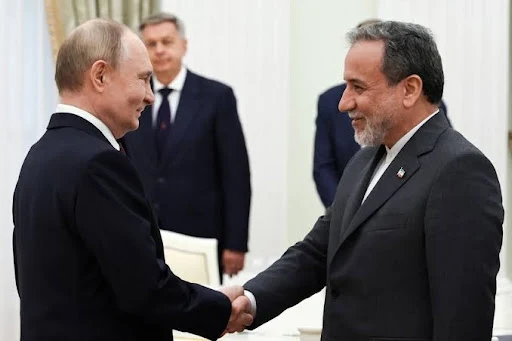MOSCOW — In a carefully calibrated move, Russian President Vladimir V. Putin on Monday condemned recent Israeli and American strikes on Iran, calling the assault “unprovoked” and “unjustified,” while stopping short of making any direct threats or firm commitments in support of Tehran.
The statement came during a high-profile meeting at the Kremlin with Iranian Foreign Minister Abbas Araghchi, marking the first publicly acknowledged diplomatic encounter between the two nations since Israel launched a sweeping military campaign against Iran on June 13. The conflict has since drawn in the United States, escalating regional instability and prompting calls for de-escalation from several global powers.
“The absolutely unprovoked aggression against Iran is unfounded and unjustified,” Putin said, according to an official Kremlin statement. He added that Russia was “making efforts to provide support to the Iranian people,” though he offered no specifics.
While Moscow has long counted Iran as a strategic ally, the Kremlin's response has so far been muted, likely reflecting its desire to avoid direct confrontation with Washington and Tel Aviv — particularly amid Russia’s ongoing war in Ukraine and its complex ties with Gulf Arab states.
Araghchi, by contrast, was far more direct in his criticism, accusing both Israel and the U.S. of “aggressive actions” and warning of consequences if the international community fails to hold them accountable.
Putin acknowledged speaking with several key players in the crisis, including U.S. President Donald J. Trump, Iranian President Ebrahim Raisi, Israeli Prime Minister Benjamin Netanyahu, UAE leaders, and Iraqi Prime Minister Mohammed Shia al-Sudani. Kremlin sources suggest the discussions are part of an emerging Russian bid to mediate peace talks between the warring sides.
Still, no concrete proposals have been announced, and the Kremlin’s language reflected a cautious approach. Dmitri S. Peskov, Putin’s spokesman, deflected questions about whether Russia would bolster Iranian air defenses, stating only that “everything will depend on what Iran will need.”
Peskov reiterated that Russia had already condemned the strikes and offered to mediate, calling those steps a form of “support” — a term which, while diplomatically significant, falls short of the military aid Iran is reportedly seeking.
Analysts believe Russia’s strategy hinges on projecting influence without overstretching its military commitments or jeopardizing its fragile balancing act in the Middle East.
As violence escalates and casualties mount, the world watches closely to see whether Moscow’s restrained rhetoric will evolve into meaningful action — or whether its mediation overtures are more about optics than impact.
Tags
Israel-Iran war
